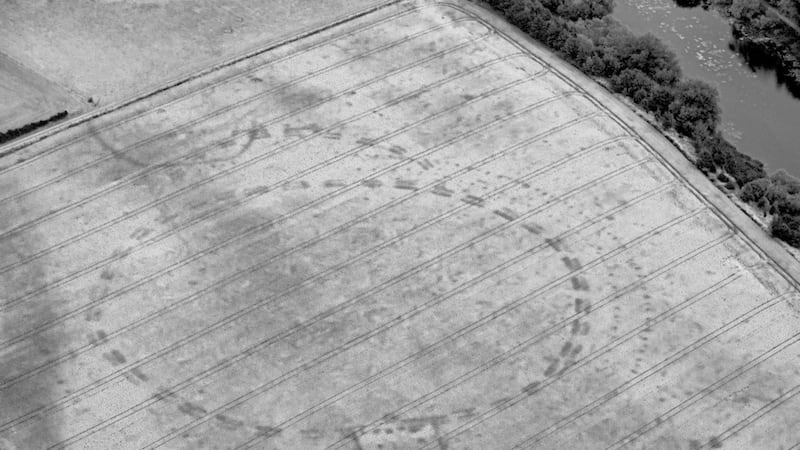ON Monday, September 5 1977 I started in primary one at St Comgall's in Antrim. It was only momentous for me because it marked the moment in personal history where my journey into life really began.
My single memory of that first day is scrapping with another wee lad, and getting slapped twice with a ruler for the only time during school life. (A wave of the wooden spoon at home was needed a wee bit more often.)
On the same day, the second of Nasa's twin Voyager probes was launched from Cape Canaveral in Florida.
In 2012, that probe, Voyager 1, entered the outer reaches of our solar system.
In recent weeks, its twin (Voyager 2, launched a fornight earlier in late August 1977) has also reached the outer limits of our solar system - interstellar space.
The Voyager probes are now the most distant objects ever dispatched from earth. They are over 11 billion miles away from our planet, beyond the region of our own sun's influence.
Their next stop, quite literally, is the stars. And yet Nasa is still receiving transmissions of information. It is an incredible feat of human exploration.
Scientists working on Voyager exude the enthusiasm of early explorers, recognising that a tin can fired into space four decades ago is still enlightening the most extreme boundaries of human knowledge.
It shows that the distance a life - or even a life's idea - can travel in 40-odd years is never measured merely in miles or money.
The importance of discovery as a basis for strengthening human progress is increasingly critical - whether in science and history, psychology and physiology, geology and geography, equality and empowerment.
No doubt, there is a constant balance to strike between facing immediate realities today and discovering new imaginings tomorrow.
And yet without the evidence from constant discovery, we would never fully know critical facts like the urgent environmental danger faced by our planet.
So there is reason for hope and optimism looking at some of the discoveries of recent weeks and months, and thinking about many of the tentative, tindering discoveries that await ignition in the coming year.
In late December stunning aerial images were released that had been taken during last summer's heat wave.
They show an array of previously unknown 5,000 year-old monuments around Newgrange passage tomb in Co Meath.
A few days beforehand, an immaculate, untouched tomb had been opened in Egypt which dates from the Pharoahs of 4,400 years ago.
And a few days later, scientists confirmed that a traditional local 'cure' taken from soil in a graveyard in Fermanagh holds potential healing properties. Discoveries shining new light on life.
Meanwhile technological discoveries were revealed about new methods showing great promise by targeting cancer with transplanted cells.
Sustainable energy discoveries are pushing change everyday, from new methods for desalination of sea water to cleaner fuels. Divestment decisions from fossil fuels are increasing.
We learned that UK car sales of electric and hybrid models have risen by 21 per cent in the past year.
We've even discovered that 'hope and history' can still sometimes rhyme in the wonky world of electoral democratic politics with a wonderful rainbow coalition of new women politicians entering the US Congress in a dance of stylish substance, from former refugees to Native Americans, just when they are needed most.
Discovery enlightens our existence. At a personal level, it is the antidote to dogma. Like the Voyager probes, personal discovery means reaching far beyond the 'region of our own sun' to people and ideas and information that would otherwise not cross our lives.
Opening our mindsets with optimism is key to enriching social development, political transformation, economic growth, and environmental sustainability.
The human capacity for discovery of life's richness is bound only by the horizons that we each set for ourselves. (Likewise for our journeys of spiritual discovery.)
After 41 years from that very first day at school, the Voyager mission reminds me of the infinite vastness in our lives that awaits discovery and exploration.
And it won't be found by standing still, nor by looking constantly backwards into long established history.
Humanity's future goals must increasingly become global and more collective.
And our discoveries must seek to serve the ethical purpose of those goals. Survival demands it.
We have to remember the positive progress that parts of this planet - including our own island - have achieved. And we have to think bigger about how much more progress is still needed across humanity.
So if you want one 2019 New Year's resolution, commit to looking forward for more discovery - of our lives and our planet. And aim for the stars.








